![]() — Home — Business News
— Home — Business News
Weekly Business News from Myanmar
-
Myanmar is prioritizing import substitutions in order to reduce the trade deficit while boosting exports (U Than Aung, Deputy Director of Directorate of Investment and Company Administration)
In order to reduce the trade deficit, Myanmar is putting a priority on import substitutions, the Deputy Director of Directorate of Investment and Company Administration, U Than Aung Kyaw, said at Korea-Myanmar Investment Forum held at Latte on June 20. Import substitutions industrialization is a trade and economic policy which advocates replacing foreign imports with domestic production. This type of policy is intended to reduce a countries foreign dependency through the local production of industrialized products, or in Myanmar’s case, reduce the trade deficit while boosting exports. “We are trying to boost exports by producing value added products. If we can produce import substitution products locally, imports will decease itself,” he said. He also explained that reducing the amount of imports will help level out the trade deficit, but perhaps more importantly, it will also create more job opportunities for local workers. -
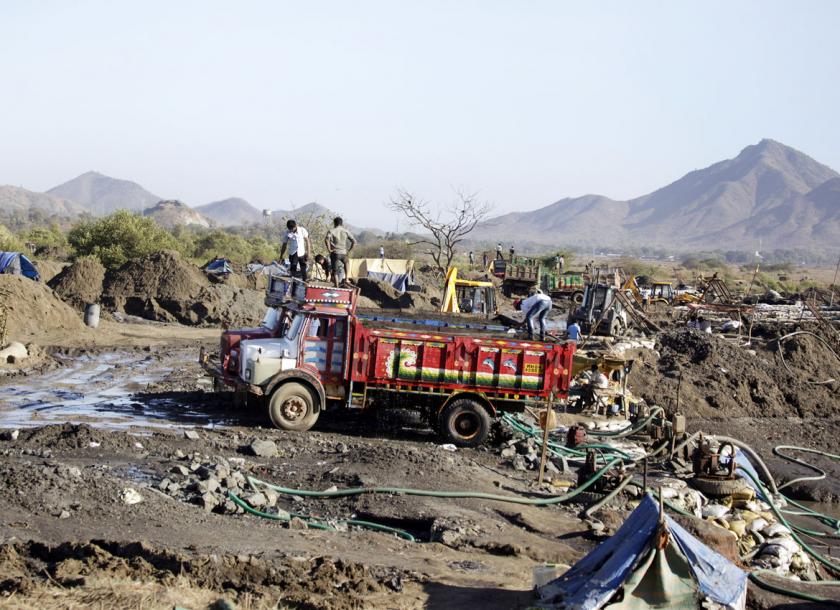
Legal experts and authorities announced that a locally registered company, Kyaw KS Development Trading Company, needs MIC approval to extract 5 million cubic metres of sand mining over five years in Tanintharyi Region
Legal experts and authorities have confirmed with The Myanmar Times that the sand mining activities proposed by Kyaw KS Development Trading Co require approval from the Myanmar Investment Commission (MIC). Prior to starting any activities, an Environmental Impact Assessment (EIA) is also necessary by law. Official documents signed by township administrators in Tanintharyi seen by The Myanmar Times revealed that Kyaw KS, a local company registered in Yangon Region, is seeking township approval to extract 5 million cubic metres of sand over five years in Tanintharyi Region in partnership with Singapore-based Delta Gold. The documents made no mention of EIAs or MIC approval, only that a ground survey was conducted, arguing “no objections” were raised and the project will have “no environmental damage”. The claims made in the documents are at odds with the views of experts and environmental specialists, who have warned that the activities will be highly detrimental to a nearby pearl farm and harm the biodiversity and livelihoods of local fishing communities. The Myanmar Centre for Responsible Business (MCRB), WWF Myanmar and Fauna & Flora International have all raised serious objections regarding the project. -
First Myanmar Investment Group (FMI) will keep investing in four key sectors- financial services, healthcare, real estate, and tourism after posting record high revenue in 2018 fiscal year
FIRST Myanmar Investment Group (FMI), one of the five companies listed on the Yangon Stock Exchange, says it will keep investing in four key sectors - financial services, healthcare, real estate and tourism - after posting record-high revenue for fiscal year 2018. The company booked more than 200 billion kyats in sales for the financial year that ended on March 31. TunTun, executive director and chief financial officer of FMI, said the revenue increases at two of the group’s subsidiaries, Yoma Bank and Pun Hlaing Siloam Hospital (PHSH), were key contributors to the record revenue growth enjoyed by the group. Revenue jumped 27.5 per cent at Yoma Bank and PHSH piled on a 28.2 per cent gain for the financial year. “Our financial services have grown due to increased interest income from loans, overdrafts, and hire-purchase products, which was largely driven by Yoma Bank’s growing loan book. Likewise, an increase in patient volumes mainly drove our revenue growth in healthcare sector,” TunTun said at a press conference. -
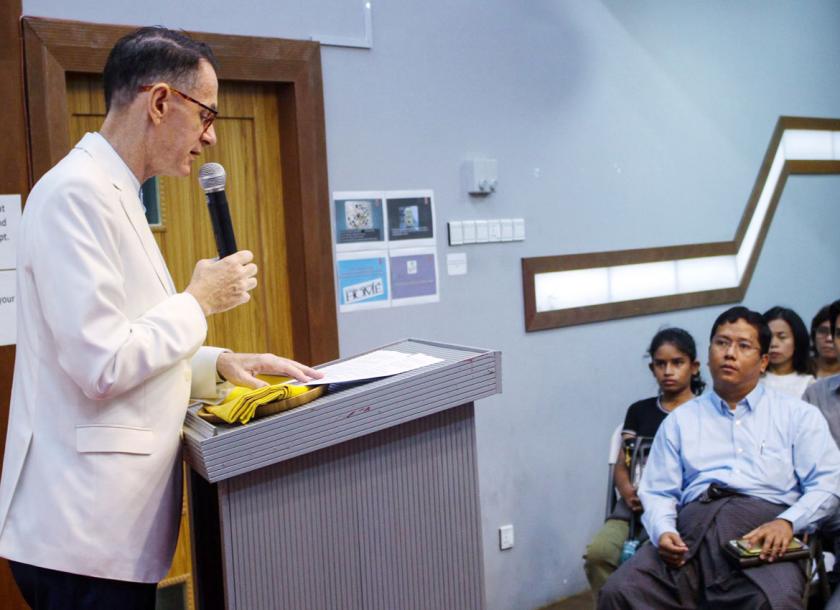
Australian Ambassador to Myanmar exuded praise on the economic policies created by the NLD government
Australian Ambassador Nicholas Coppel reaffirmed Australia’s continuing engagement with Myanmar at a talk organised by the Parami Institute of Liberal Arts and Sciences on Saturday, expressing the need for greater international support to foster freer and more stable conditions in the nation. Mr Coppel also exuded high praise of the economic policies created by the NLD government. “Myanmar is one of the least known and understood countries in Southeast Asia. The gap in understanding and knowledge can only be bridged by greater engagement,” he said. “Myanmar has its own problems in terms of internal conflict and it will take a long time to overcome these. Our approach is one very much supporting the processes, and the government and Myanmar people to find solutions to their own issues.” The ambassador said the current status of Australia’s trade relationship with Myanmar as weak, but praised the current government for the steps it has taken towards fostering an economic environment which facilitates greater trade. -
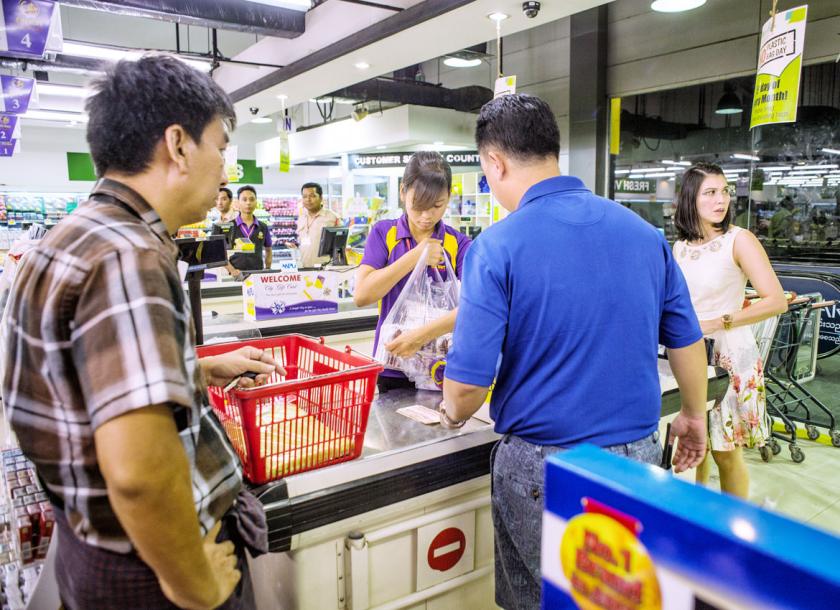
Business leaders warned the government not to backtrack on the retail and wholesale reform and not to impose further restrictions on foreign investments
AMID news that the commerce ministry might backtrack on the retail and wholesale sector reform and impose further restrictions on foreign investments, business leaders warn that any such retraction will be “extremely disappointing” and seriously derail efforts to attract foreign investments for the country. The ministry insisted that they currently have no plans for additional restrictions and that a review put in place for the reform is only intended to clarify the regulation. Information from one of the major chambers in the country reveals that the government is considering backtracking the liberalisation for the retail and wholesale sector by limiting the scope of foreign investors and/or joint-ventures (JVs) by imposing restrictions additional to those laid out in the Directive 25/2018 -- namely the substantial capital requirement and restriction on retail size. The Directive 25/2018, released by the Ministry of Commerce (MOC) on May 9, authorises 100 percent foreign-owned companies as well as JVs between international and domestic investors to carry out retail and wholesale businesses. -
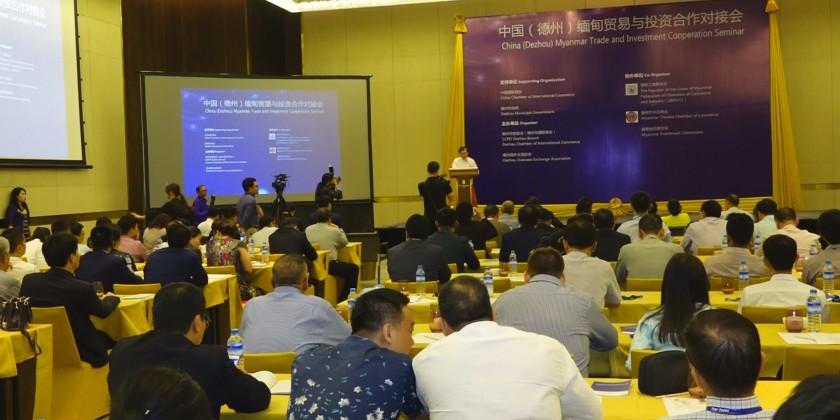
China – Myanmar Trade and Investment Cooperation seminar took place in Yangon in order to boost business cooperation between the two countries
China (Dezhou) Myanmar Trade and investment cooperation seminar took place with the assistance of UMFCCI in Yangon on Monday. The seminar aims to boost business cooperation between Chinese and Myanmar entrepreneurs. The Chinese entrepreneurs are now showing interest to invest in Myanmar’s energy, agriculture, manufacturing and industry sectors. Chairman, CCOIC, Li LianJun said “We came here with our delegation for business matching with Myanmar entrepreneurs and government too. We’re really interested in energy, agriculture and manufacturing sectors. Officials would also explain about the investment laws and environment as well as policies in this seminar.” Myanmar entrepreneurs, in this seminar, answered questions on investment issues raised by Chinese entrepreneurs. Both sides hope for more foreign investment and greater business cooperation between China and Myanmar. -

The Government will launch the tenders for the construction of at least two oil refineries to cover expected demand for products like petroleum in the next 20 years
The government will soon launch tenders for the construction of at least two oil refineries, now “urgently required” on the back of rising demand and higher oil prices, which has led to a much higher petrol import bill of late. “We will need one big oil refinery to cover expected demand for products like petroleum in the next 20 years. Myanmar needs to produce value-added oil products. This will involve huge investments,” said Daw Phyu Phyu Aung, Chief Process Engineer from State-owned No.1 Thanlyin Refinery. “As importing petrol when demand and costs are rising is a waste of money we will invite international investors to bid for the work, which will be under a joint venture arrangement with the government. The terms and conditions of the tender rounds are now under review,” she said. The India Oil Company is among the companies in discussion with the government, The Myanmar Times understands. -
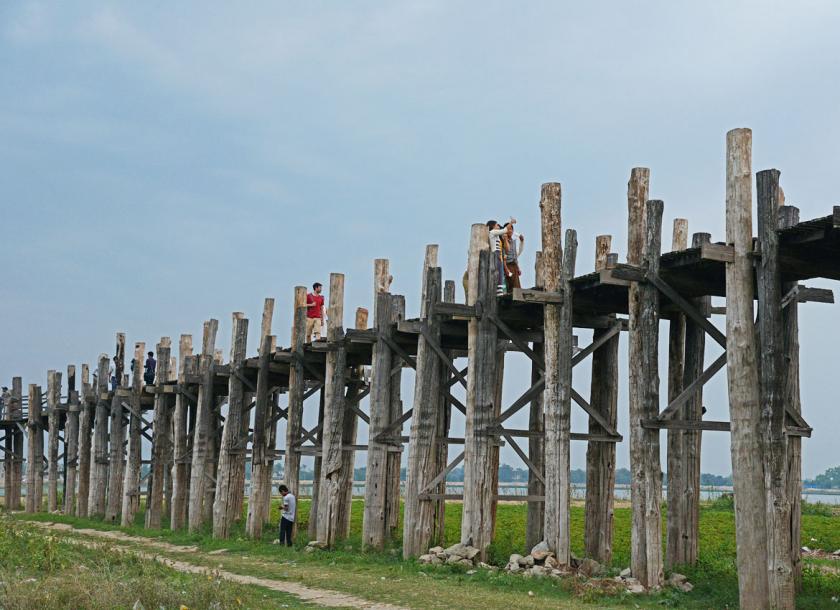
Mandalay Regional Government has permitted the opening of 14 locals and foreign business and GDP has risen to 7.4 percent in the 2017 - 2018 fiscal year
Mandalay Region, Myanmar’s second largest city, has permitted the opening of 14 local and foreign businesses in the 2017-2018 fiscal year, said Dr Zaw Myint Maung, chair of the Mandalay Regional Investment Committee. Nine foreign companies will contribute foreign direct investments totaling $13.6 million, while the remaining six companies will contribute K23.1 billion in local investments. “By reducing the administrative procedures involved in the approval process, we can now give the companies permission to do business in Mandalay on the spot if the applicant’s documents are complete,” Dr Zaw Myint Maung said. The move is part of a wider push to expedite the approval process for companies seeking to invest in the states and regions of Myanmar under the New Investment Law enacted in October 2016. Under that law, investment committees were formed in each of the states and regions to decentralise decision-making and facilitate investments. -
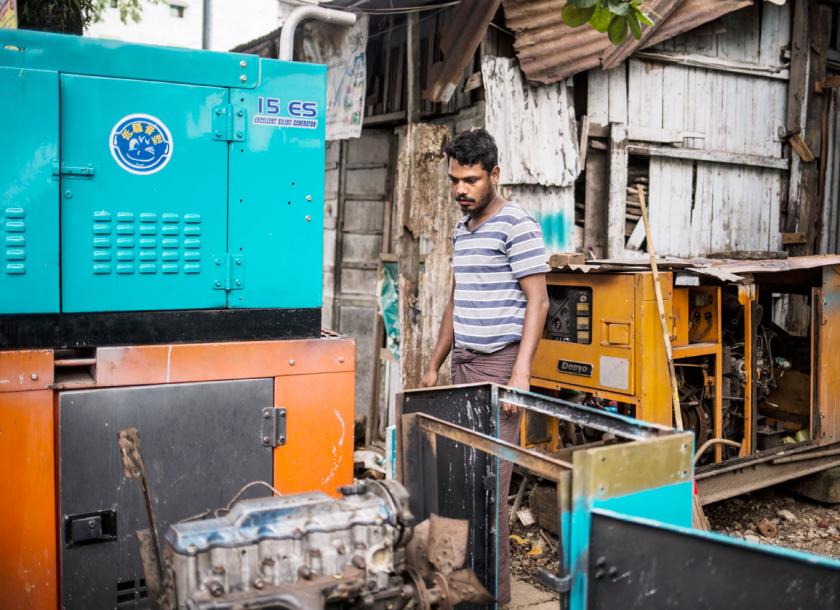
Industry insiders discussed options to plug the gap between demand and supply of electricity by importing Liquefied Natural Gas (LNG)
At a Yangon energy seminar last week, industry insiders agreed that demand for electricity in Myanmar is rising much faster than supply can keep up with it. However, views on how best to solve the country’s chronic shortage of power soon diverged. Currently, electricity consumption in Myanmar stands at 3,300 MW. With demand expected to rise by around 15 percent each year for the next two years, total consumption could rise to as high as 5,000MW by 2020. As of now, the government plans to plug the gap between demand and supply of electricity by importing liquefied natural gas (LNG). It is currently in the process of negotiating the Power Purchase Agreements involved. But importing LNG is ultimately very expensive, so cheaper alternatives to producing power should have been explored before resorting to LNG, said energy analyst U Myo Myint. U Aung Myo Win, deputy director at the Planning Division under the Department of Electric Power and Planning, pointed out that the government opted for LNG due to the long periods involved in harnessing hydro power. -
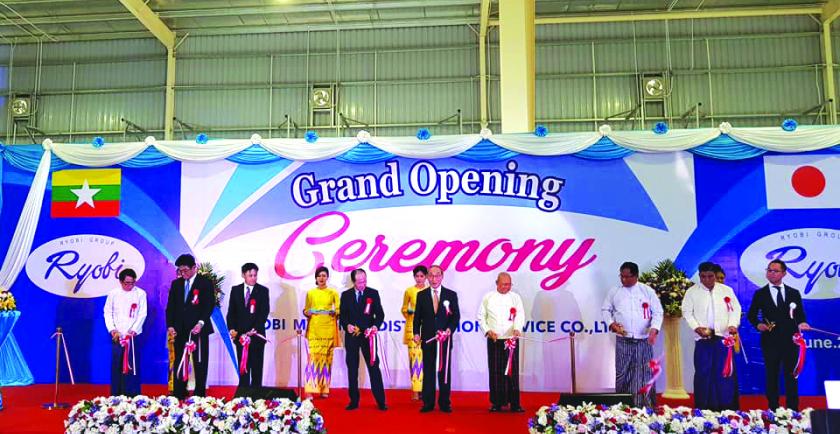
Ryobi Myanmar opened the biggest warehouse in Thilawa Special Economic Zone covering 36,000 square meters
Ryobi Myanmar, fully foreigner owed by a Japanese company, opened a warehouse with the land area of 36,000 square meters making it the largest warehouse in the country, at Zone A of Thilawa Special Economic Zone in Yangon on June 12. The company that founded Ryobi Myanmar is operating a warehouse service and distribution service, and invested $29.7 billion was used for building the warehouse in Thilawa SEZ. “I believe opening the largest warehouse in Myanmar will help the economic development not only of Yangon Region but also of the whole country. To grow the economy, it is not enough only with production. It is also important to have a well-established storage and distribution system to store goods for distribution,’’ U Myint Thaung, Minister of Planning and Finance, said.
Business News
Copyright © 2014 Business Information Center All Rights Reserved.







